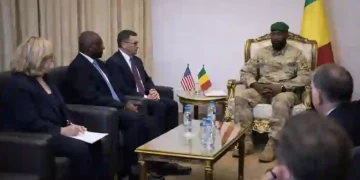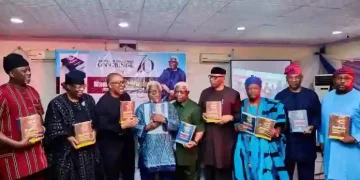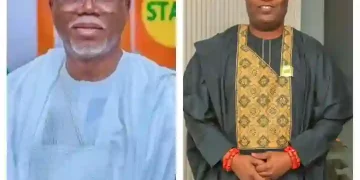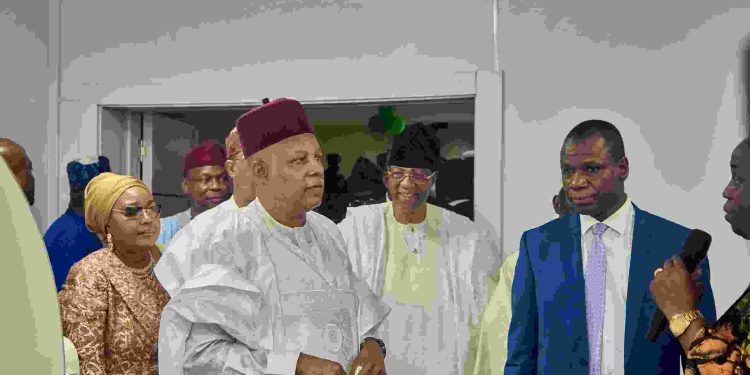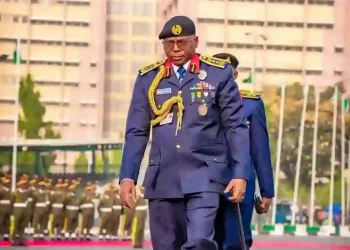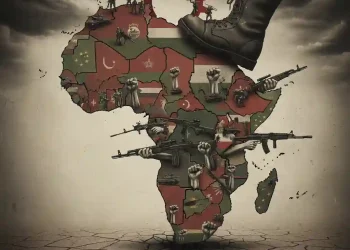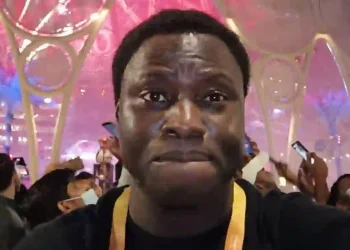“Bí àkùko bá ń jẹ́ òkété, tí ẹyẹlé ń wò ó, ẹyẹlé ń kó ọgbọ́n lérè.”
(When a chicken is eating a bush rat and the pigeon is watching, the pigeon is learning a lesson.)
This Yoruba adage reminds us that bad habits formed in private will eventually manifest in public, sometimes to our embarrassment.
The wisdom of our ancestors has once again proven true at a recent commissioning ceremony in Ogun State.
“Ẹni tó bá da omi síbi, yóò gbẹ̀rù ẹ.” (He who spits in the air will receive it back on his face.)
There is a natural order to life that even the most powerful cannot escape. When we disrespect those who once lifted us up, karma has a way of settling the score in the most unexpected ways.
These ancient wisdoms played out dramatically at the commissioning of the Adegunwa-donated Olabisi Onabanjo University Teaching Hospital Trauma Centre.
In a moment that left attendees holding their breath, Vice President Kashim Shettima turned to former Governor Otunba Gbenga Daniel and, within earshot of Governor Dapo Abiodun, remarked pointedly: “You are from Sagamu, this your Governor is not being fair to you.”
Though laughter followed to ease the tension, the rebuke was as clear as daylight.
The Vice President, known for his diplomatic tact, had chosen this public forum to address what many have noticed but few dare mention: Governor Abiodun’s persistent disregard for protocol when it comes to acknowledging his predecessors and benefactors.
At public functions, Governor Dapo Abiodun recognizes his political appointees and aides before acknowledging former Governors Gbenga Daniel and Ibikunle Amosun – both instrumental figures in his political journey.
It has become a pattern too consistent to be accidental.
This breach of traditional protocol has not gone unnoticed in political circles, and apparently not by the Vice President either.
What makes this particularly telling is that the Trauma Centre itself represents a vision first conceived during Daniel’s administration in 2010.
Otunba Gbenga Daniel had laid the foundation for this very diagnostic and trauma center, even constructing a bridge through OGROMA to access the site.
The project lay dormant through successive administrations until philanthropist Alhaji Adebola Adegunwa revived it as his 80th birthday gift to Sagamu community.
Perhaps Governor Abiodun fails to recognize that true greatness acknowledges the shoulders it stands upon. In his apparent eagerness to assert his own importance, he has only revealed the smallness of his character.
While he busies himself with protocol manipulations, Otunba Gbenga Daniel continues to command respect not through ceremonial acknowledgments but through the lasting impact of his vision and works.
The Vice President’s intervention serves as a mirror held up to Governor Abiodun’s conduct. It reveals a man competing with shadows while Otunba Gbenga Daniel walks in the light of accomplished leadership. One builds bridges both literal and figurative, while the other seems determined to burn them.
There are lessons here for anyone with the wisdom to learn them:
First, humility acknowledges the path others cleared for your success. When you fail to honor those who helped make your rise possible, you diminish not them, but yourself.
Second, true leadership is not measured in the order of protocol announcements but in the lasting impact of one’s vision. The Trauma Center remains a Daniel’s foresight, regardless of who announces his name first or last.
Third, even the highest office can not shield one from the natural consequences of disrespect. The Vice President’s gentle but public rebuke demonstrates that karma needs no invitation to attend state functions.
As the dust settles on this moment of uncomfortable truth, Governor Abiodun might reflect on the wisdom of our ancestors: respect is not diminished when shared, and gratitude is the mark of true greatness. The elders say that a child who refuses to acknowledge the hand that fed him will one day find his own hand empty when extended for help.
When the political pageantry fades and the substantial remains, history will record not who was acknowledged first in speeches but who first acknowledged the needs of the people in their actions. By that measure, the gap between Dapo Abiodun and Otunba Gbenga Daniel reveals itself not as competition but as contrast.
Oladapo Odunlami writes from Abeokuta, Ogun State.

